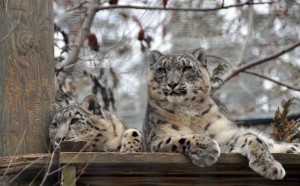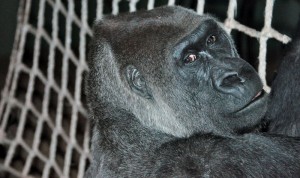I often hear debates about whether zoos should exist. Displaying caged animals for the purpose of human entertainment raises concerns about animal rights. However, I believe the role of zoos goes far beyond entertaining visitors. Accredited zoos usually help to support the preservation of endangered species. Most importantly, through zoo trips many people get to know and love the animals they see and learn the importance of protecting wildlife.
 I grew up in Toronto and visited the local zoo throughout my childhood. I was fascinated to see animals I had only heard of and was interested to discover species that were unfamiliar to me. Undoubtedly, I found my experience entertaining and I have fond childhood memories of family trips to the zoo. However, the experience didn’t end there. After these trips, I wanted to read more about the animals I had seen. I read books about wildlife and wanted to talk to the zookeepers about the animals they fed. I discovered that giraffes sleep for about two hours a day and that elephant pregnancy lasts for almost two years. These types of interesting facts made me want to learn more about the different types of creatures on our planet.
I grew up in Toronto and visited the local zoo throughout my childhood. I was fascinated to see animals I had only heard of and was interested to discover species that were unfamiliar to me. Undoubtedly, I found my experience entertaining and I have fond childhood memories of family trips to the zoo. However, the experience didn’t end there. After these trips, I wanted to read more about the animals I had seen. I read books about wildlife and wanted to talk to the zookeepers about the animals they fed. I discovered that giraffes sleep for about two hours a day and that elephant pregnancy lasts for almost two years. These types of interesting facts made me want to learn more about the different types of creatures on our planet.
As I learned more about the animals I saw, I grew to love them. And with love, there usually comes an obligation to protect. I read more about the types of animals I saw at the zoo and discovered that many species are endangered. I wanted to know what I could do to prevent the extinction of these animals.
 Evidently, there are many who don’t encounter the same experience I had. But many children who visit the zoo will learn to appreciate wildlife more so than if they never have a close encounter with wild animals. A child who has looked into the tranquil eyes of a gorilla is more likely to support the conservation of these animals. And children who have watched a polar bear swim gracefully, as it cools off in the water, will likely want to protect the polar bear’s real habitat and support efforts to fight global warming.
Evidently, there are many who don’t encounter the same experience I had. But many children who visit the zoo will learn to appreciate wildlife more so than if they never have a close encounter with wild animals. A child who has looked into the tranquil eyes of a gorilla is more likely to support the conservation of these animals. And children who have watched a polar bear swim gracefully, as it cools off in the water, will likely want to protect the polar bear’s real habitat and support efforts to fight global warming.
The animals in zoos represent their cousins in the wild. Through them, children can learn about the unique creatures that live on our planet. They can learn about the importance of animal conservation. And all children eventually grow up (except for Peter Pan, but that’s a topic for another blog entry). Many grow into adults who are in positions where they need to make decisions about the environment.
Somewhere in the world, someone who lives far from any jungle is confronted with the question: Should we protect the gorilla’s habitat? I hope they have seen and remember the tranquil eyes of the gorilla, speaking for her wild cousins. The memory of those eyes could serve as the echo of the wild gorilla’s cries.
This is an informative blog post on the role of zoos. I very much enjoyed reading it and certainly agree that zoos have an important role in promoting our understanding of environmental issues, specifically the place of animals and our treatment of them. I agree that the voice of zoo animals echoes those of their cousins in the wild and it is imperative to familiarize ourselves with animal conservation. Educating our children and others in society to appreciate the crucial place of animals in our world will also teach us to care more for our own environment, appreciate the unique balance of our planet and strive to be compassionate and open-minded to all that nature has to offer us. Keep up the great work and I’m excited for your next environmental blog post!